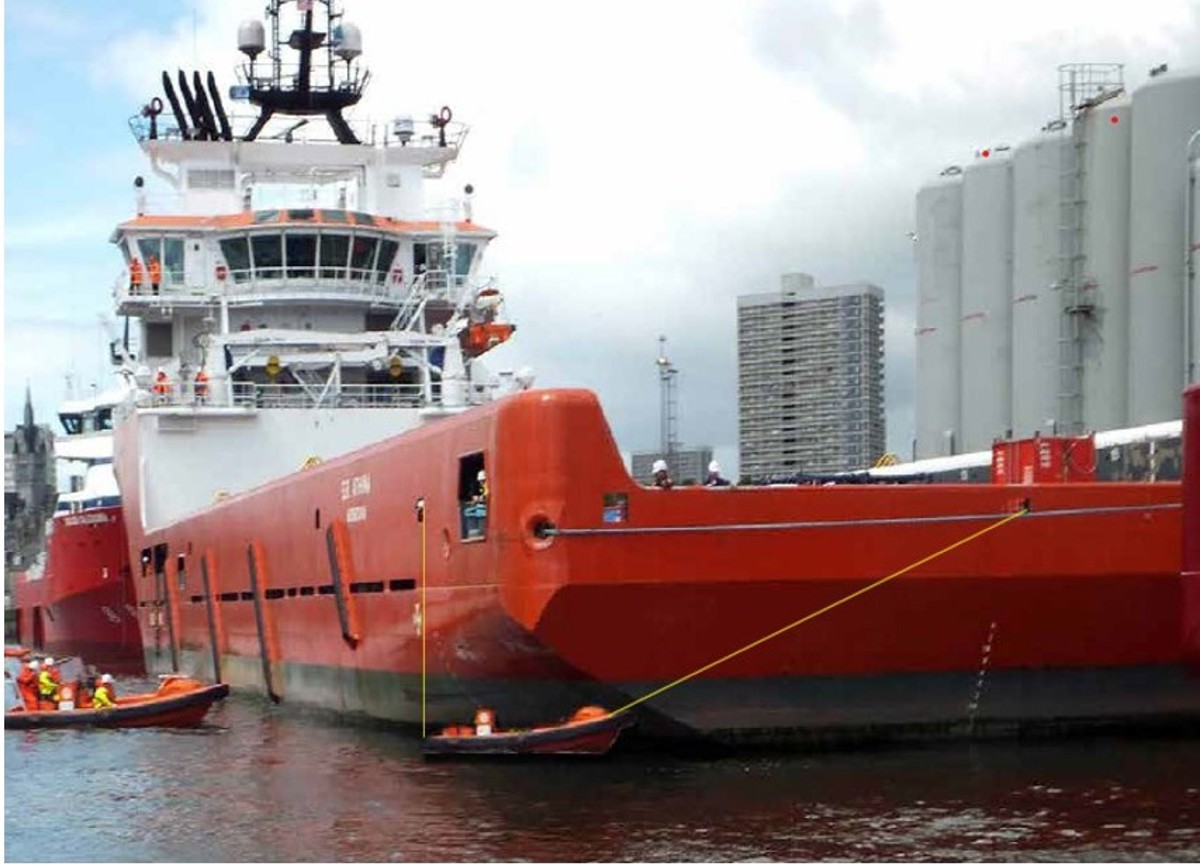Fatal crush incident between platform supply vessel and fast rescue craft (2012)
- Safety Flash
- Published on 20 June 2022
- Generated on 27 February 2026
- IMCA SF 15/22
- 2 minute read
Jump to:
Fatal crush injury brought to our attention again following a further report published by the Scottish government.
This is an old incident which occurred ten years ago in Aberdeen. The initial Marine Accident Investigation Branch report here was brought to members’ attention as IMCA SF 04/13 Fatal crush injury during vessel hull maintenance. It is brought to our attention again following a further report published by the Scottish government in April this year.
What happened?
On 10 June 2012, the bosun on board a platform supply ship was fatally injured when he was crushed between the ship’s hull and the lifting frame of the ship’s fast rescue craft (FRC). The bosun was the FRC’s coxswain and the FRC was being positioned alongside the supply ship’s port quarter to repair a small area of damaged paintwork. The bosun suffered severe internal chest injuries and was evacuated ashore for medical treatment. He died soon after arriving at hospital.

What went wrong?
The MAIB investigation identified that:
- The FRC was being set against the port quarter of the platform supply ship by the prevailing swell and tidal stream and the bosun was possibly trying to push the FRC away from the supply ship’s hull.
- The use of the FRC as a painting platform had not been properly planned and the risks involved had not been formally assessed.
- There was a failure to call for emergency medical assistance in a timely way: the severity of the bosun’s injuries was not immediately recognised, and his transfer to hospital ashore would probably have been quicker if it had been arranged through the coastguard rather than the ship’s agent.
Recommendations
- Raise awareness of vessel crews regarding the importance of completing risk assessments when undertaking new or unusual tasks.
- Ensure that prompt action is taken when a medical emergency occurs on board.
- “Those responsible for operating…vessels…should have in place the necessary training, guidance, procedures and rules to ensure informed and appropriate responses to medical incidents of uncertain severity. These measures should ensure that an appropriate assessment is carried out as quickly as possible so that the potential medical emergencies are treated as such”.
Related Safety Flashes
-
IMCA SF 27/21
1 October 2021
-
-
IMCA SF 20/21
22 July 2021
-
-
IMCA SF 05/19
20 March 2019
-
IMCA Safety Flashes summarise key safety matters and incidents, allowing lessons to be more easily learnt for the benefit of the entire offshore industry.
The effectiveness of the IMCA Safety Flash system depends on the industry sharing information and so avoiding repeat incidents. Incidents are classified according to IOGP's Life Saving Rules.
All information is anonymised or sanitised, as appropriate, and warnings for graphic content included where possible.
IMCA makes every effort to ensure both the accuracy and reliability of the information shared, but is not be liable for any guidance and/or recommendation and/or statement herein contained.
The information contained in this document does not fulfil or replace any individual's or Member's legal, regulatory or other duties or obligations in respect of their operations. Individuals and Members remain solely responsible for the safe, lawful and proper conduct of their operations.
Share your safety incidents with IMCA online. Sign-up to receive Safety Flashes straight to your email.